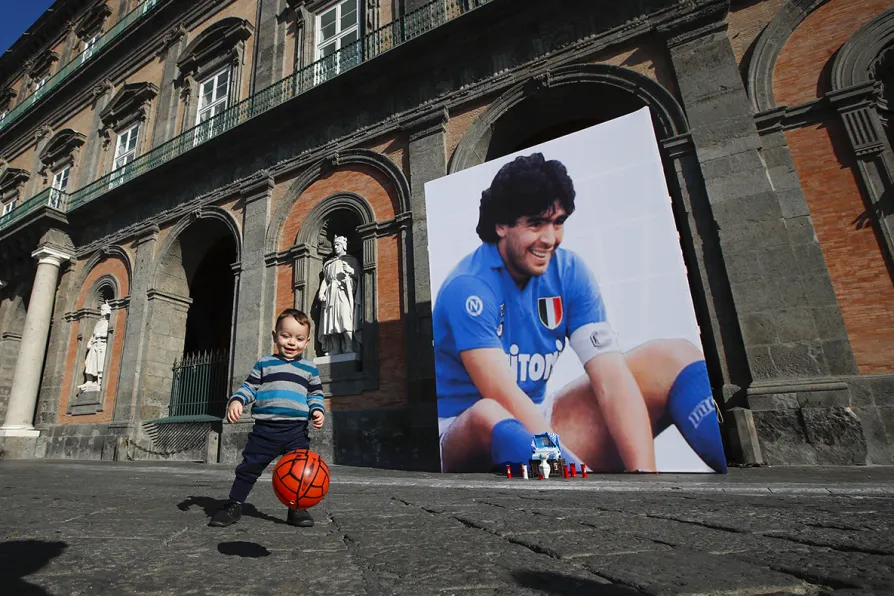From Wearside streets to rings worldwide, the boxer’s journey embodies resilience and the relentless spirit of his city, writes JOHN WIGHT

 16-months old Andrea Cangiano plays with a ball in front of an image of soccer legend Diego Maradona hanging over the facade of Naples' Royal Palace
16-months old Andrea Cangiano plays with a ball in front of an image of soccer legend Diego Maradona hanging over the facade of Naples' Royal Palace
ONCE in a generation, if that, there appears an athlete whose greatness is more than what can ever be measured on a football pitch, inside a boxing ring, or on a running track.
In the world of that most international of sports, football, Diego Maradona was greatness personified. He played the game like a man whose genius existed to serve his team, not as someone for whom the team existed to serve his genius. It’s the difference between the ideals of the collective and those of the individual. When it came to Maradona, such was his commitment to the former and rejection of the latter that he would, you always sensed, have happily pushed the team bus with his teammates on it if he ever had to.
Diego Maradona truly arrived on the global stage just after Argentina won the 1978 World Cup as the hosts. Ruled in this period by a brutal fascist junta, football for the Argentinian masses was more than a sport — it was a necessary if all too brief affirmation of life lived with joy instead of fear.

Forward’s rise as the tournament’s leading scorer reflects a journey shaped by heritage and belief as Morocco reach the final, writes JAMES NALTON

Morning Star international editor ROGER McKENZIE reminisces on how he became an Aston Villa fan, and writes about the evolution of the historic club over the years











